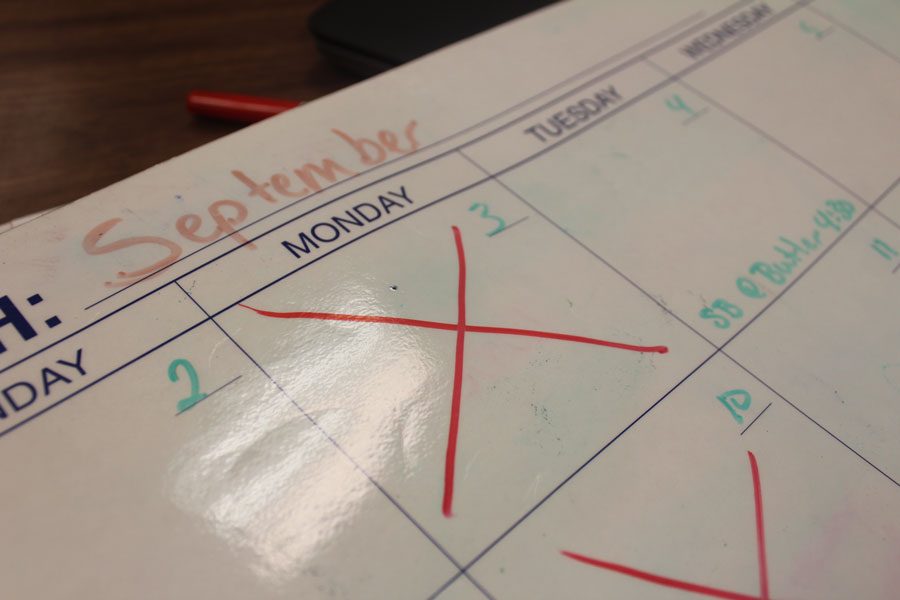Students, staff settle into four-day schedule
“Higher teacher morale, higher student morale, higher attendance rates already, not as many disciplinary referrals,” are among what Principal Danny Morrison observes to be the immediate effects of the four day school week.
After much discourse and debate in the 2017/2018 school year, Warsaw R/IX made a huge change within the district; a four-day week was approved by the board of education in March and initiated this school year.
“I can’t say because we’re early enough in it … but everyone seems more ‘uppy,’ more happy to be here,” Morrison said.
Assistant Principal Cody Wright was working as a history teacher at Walnut Grove, a school that was also on a four-day schedule. The school had been on a four-day schedule for a year of the four years that he worked there, and he claims to have been unable to observe any long-term effects.
“The effects that were noticeable were attendance. Attendance went up,” Wright said about working at Walnut Grove after their transition.
The idea for the new schedule came from Superintendent Dr. Shawn Poyser when he had been doing research to earn his specialist degree.
Poyser listed some of the reasons behind the transition as finding new teachers, longer school hours, more out-of-school time and built in snow days. However, even with these reasons people still reacted negatively.
“I was a little surprised at how some people really came after me. The people that came after me and after the four-day, they didn’t have a dog in the fight, if you will. They didn’t have kids in the district. The folks that seem to have the biggest voices were the people that were retired, or their kids no longer go to school or they have no kids at all. I like to say sometimes people just complain if their ice cream’s cold,” Poyser said.
Ninety-three percent of Warsaw staff was in favor of the four day school week, including math teacher Jowell Roellig.
“I was always for the four-day week, I was just not sure how it was going to impact my class so positively,” Roellig said. “I thought it could be something to adjust to and make work, but little did I realize what a positive impact it’s made on my class and my students.”
Roellig has also heard from her students that the dread of coming to school has been lessened now that the schedule doesn’t dominate their waking life so fully anymore.
But for some whose lives are just crammed with activities, the four-day school week can be kind of a stressful positive.
Junior Aubri Umlauf works, and is currently involved in color guard, softball, speech, pep club, band, and English club. Her extensive involvement is a mental necessity for her.
“It’s hard because I get up at five o’clock every morning for early morning band practice, then I go to softball practice or a game… It all gets crammed into a smaller amount of time.”
Senior Virgil Goucher said “I enjoy [the new schedule] because I don’t actually work work, I just work with family members up in Clinton, so it’s nice to have an extra day.”
The weekend gives him more time to work so “when I come back on Tuesdays I’m a lot more tired than usual.”
“[The new schedule] gives me more time to get away from Warsaw’s population in student form.” Junior Bonnie Davis said.
The results of a student/teacher survey tend to express that many are happy about the extra time on the weekends to rest and catch up on work. Out of 98 responses of high school teachers and students, 62.2 percent responded that the new schedule has been a positive change, with 12.2 percent reporting a negative change and 23.5 percent neutral about the change.
The survey also tends to express that the longer days are tiring to both students and teachers.

Junior Joshua Simpson is continuing his love for writing and journalism by joining The Wildcat newspaper staff for his second year as a writer. Simpson...











